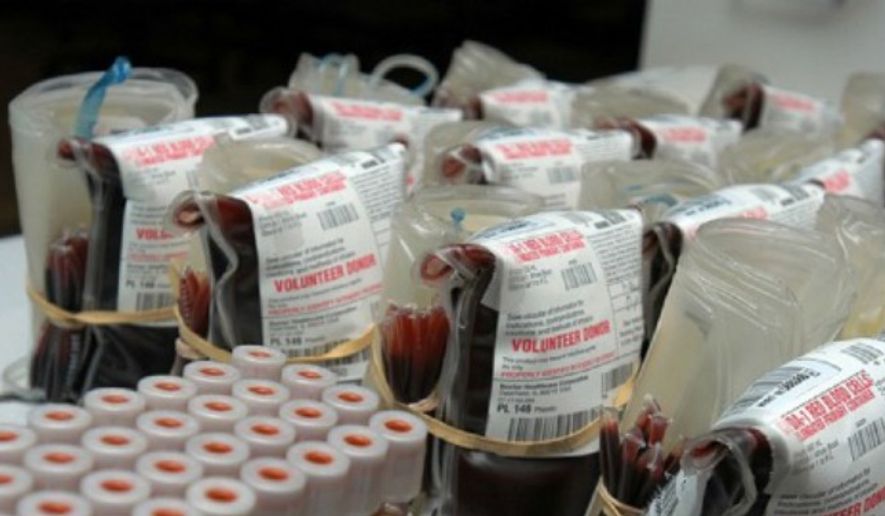A federal advisory committee Thursday took a major step toward changing national policy to permit blood donations from gay and bisexual men for the first time in decades.
With a 16-2 vote, the panel agreed to recommend that sexually active gay men be permitted to donate blood if they have not had sex with a man for at least 12 months.
Gay men currently are deferred permanently if they have had sex with a man, even once, since 1977. This policy, enacted in the early years of the AIDS epidemic when it was discovered that people could be infected by blood transfusions, has been deemed “sub-optimal” and ripe for change.
The recommended policy will be discussed in two federal agency meetings in early December, but activists see a vital step toward revision with Thursday’s vote by the Department of Health and Human Services Advisory Committee on Blood and Tissue Safety and Availability.
The panel also stressed that a blood safety surveillance system must be implemented so any policy change can be monitored closely.
Dr. Jay E. Menitove, head of the committee, chaired a daylong meeting in which research was presented on the history of blood donor policies, the state of HIV/AIDS in America, how gay men react to the current blood donor policy and how they might react to a revised policy.
Dr. Richard Benjamin, chief medical officer of the American Red Cross, gave a report on Australia’s experience with a one-year deferral for sexually active gay men, which it adopted in 2000. Australia has seen “no evidence” of increased risk of transfusion-transmission of HIV since it changed its policy, Dr. Benjamin told the meeting at a hotel in Arlington, Virginia.
Dr. Harvey Alter, chief of clinical studies at the Department of Transfusion Medicine at the National Institutes of Health, told the panel that a working group on the blood donation issue also favored a one-year deferral over keeping the status quo or adopting a five-year deferral.
Research indicated that a one-year deferral would be acceptable and would make the gay men deferral comparable to deferrals of other people with high-risk behaviors, he said.
In public comments, several gay men said the blanket ban on blood donation stigmatized them and even prevented them from giving blood to save the lives of family members.
Many gay men “would like to donate their safe blood,” Jody Huckaby, head of Parents, Families and Friends of Lesbians and Gays, said in a statement read by a colleague.
Lawrence LaMotte, vice president of public policy at the Immune Deficiency Foundation, said his group and its allies would offer a statement after they reviewed the new research.
However, the view of blood and plasma recipients is that “there cannot be any mistakes,” Mr. LaMotte said.
Blood recipients are “agnostic” about who the donors are, he said. They just want the blood “to be safe.”
• Cheryl Wetzstein can be reached at cwetzstein@washingtontimes.com.




Please read our comment policy before commenting.